Science
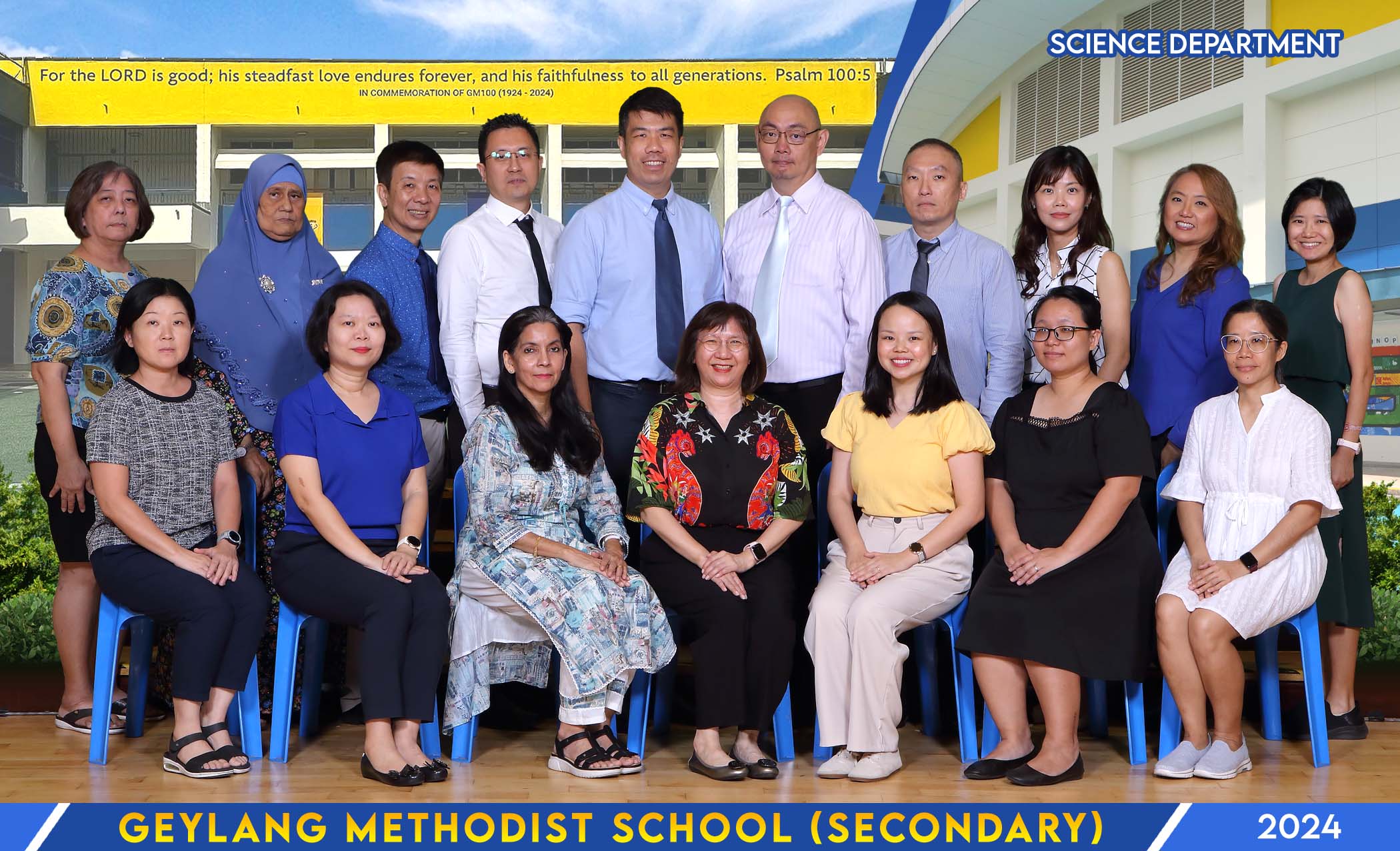
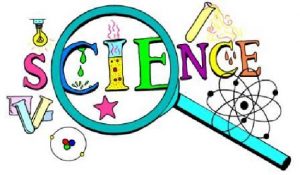
The Lower Secondary Science syllabus is a continuation and further development of the Primary Science syllabus. It is also a bridge to, and a foundation for, the pursuit of scientific studies at upper secondary levels, where students get to choose which branch of Science (Physics, Chemistry and Biology) they would like to pursue at the end of Secondary 2.
Curriculum
The curriculum aims to develop students who will become confident and competent in Science through engaging and exciting Science programmes. The four- or five-year secondary science curriculum involves:
-
Acquisition of knowledge through inquiry-based approach classroom activities, enrichment programmes and workshops;
-
Application of knowledge through science projects;
-
Developing skills and abilities through lab work and hands-on activities;
-
Experiential learning through science field trips and external competitions such as F1 in schools, Singapore Amazing Flying Machine Challenge, Ignite Skills Challenge and Science Buskers.
Assessment
The modes of assessment include:
-
continual assessment (theory, practical tests and project work);
-
semestral assessment (mid-year exam and end-of-year exam).
To enjoy science, pupils are encouraged to:
-
be observant and inquisitive,
-
be inventive,
-
be creative,
-
be curious,
-
have an awareness of safety and
-
have an awareness of natural phenomena and science-related social issues.
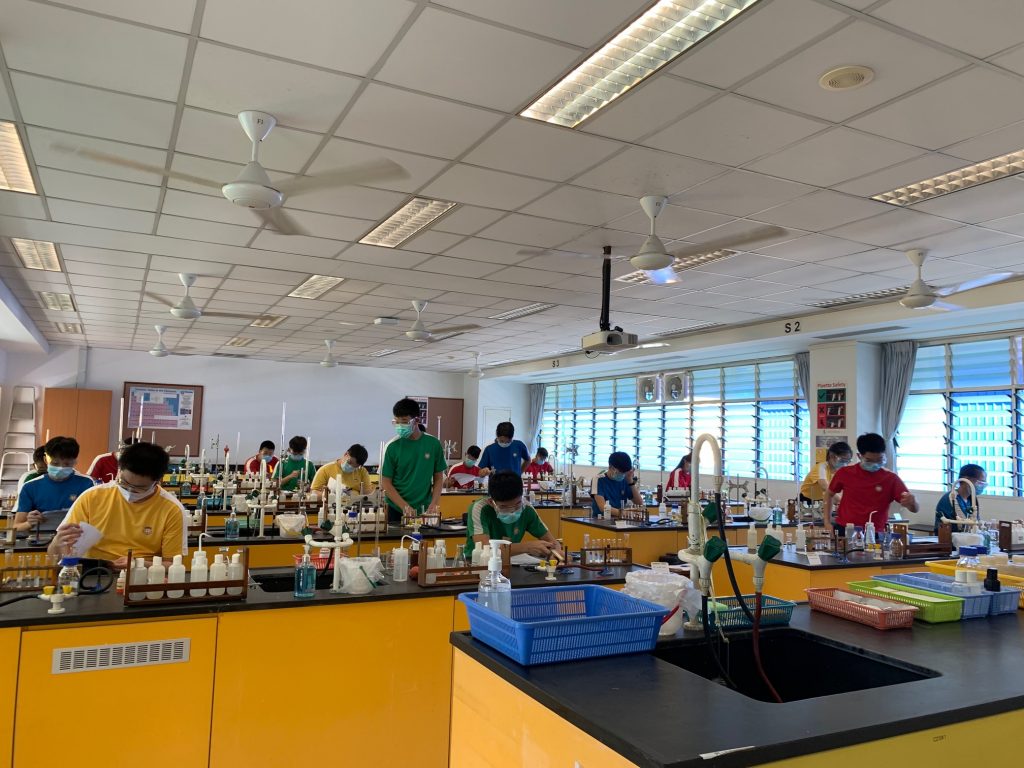
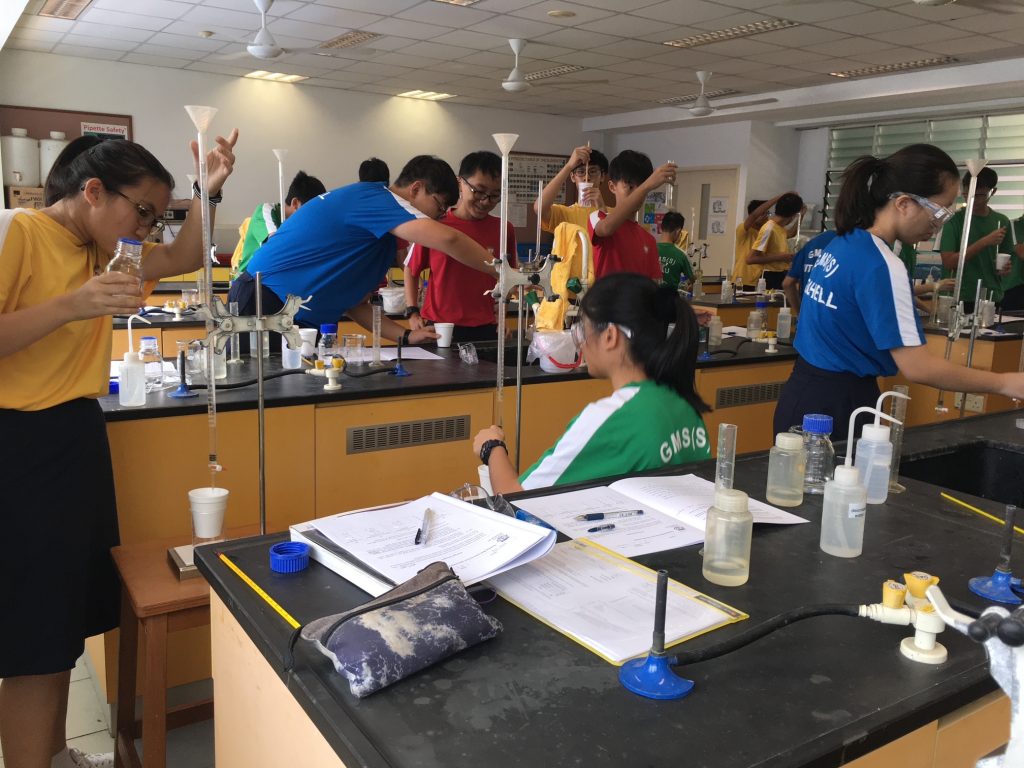
Apart from the core curriculum mentioned above, all students will have the opportunity to participate in, and be enriched through our applied learning programme in Science (ALP).
GEMS - APPLIED LEARNING PROGRAMME IN SCIENCE (ALP)
Introduction
Theme: Sustainability – Promoting a Sustainable World.
Geylang Methodist School (Secondary) Applied Learning Programme in Science (ALP) adopts a contextualized approach in its curriculum design, exploring a common theme on sustainability with a unique programme for each level. We also collaborate with the relevant industries to provide students with opportunities to address real-world problems.
GMS(S) ALP adopts a blended approach where the Tier 1 ALP, conducted for all lower secondary students, is infused into the science curriculum, one hour per week for 10 weeks. Tier 2 ALP is targeted at Secondary 3 students, who are interested and passionate in the subject, and wish to further pursue sustainability at a higher level.
What Students Learn
Tier-1 programme exposes students to basic science principles and the use of instrumentation as they embark on investigative experiments / fieldwork and engage in a mini-project on Urban Heat Island (UHI) in Sec 1, and Urban Agriculture in Sec 2.
Tier-2 programme further develops students’ interest, abilities and attitudes towards STEM. The program provides a platform for the students to explore and connect their scientific knowledge and skills to solve real-world problems around them.
What the ALP Aims to Do
-
Provide opportunities for students to apply science and engineering concepts;
-
Encourage students to develop independent thinking, scientific curiosity and scientific inquiry through project-based learning, which incorporates 21 CC; and
-
Promotes interest in STEM subjects through inquiry-based experimentation under a Structured Experimentation Programme, which invites students to explore an idea, pose a question and to subsequently solve a problem or to test a hypothesis. This allows students to extend their learning beyond the walls of a classroom.
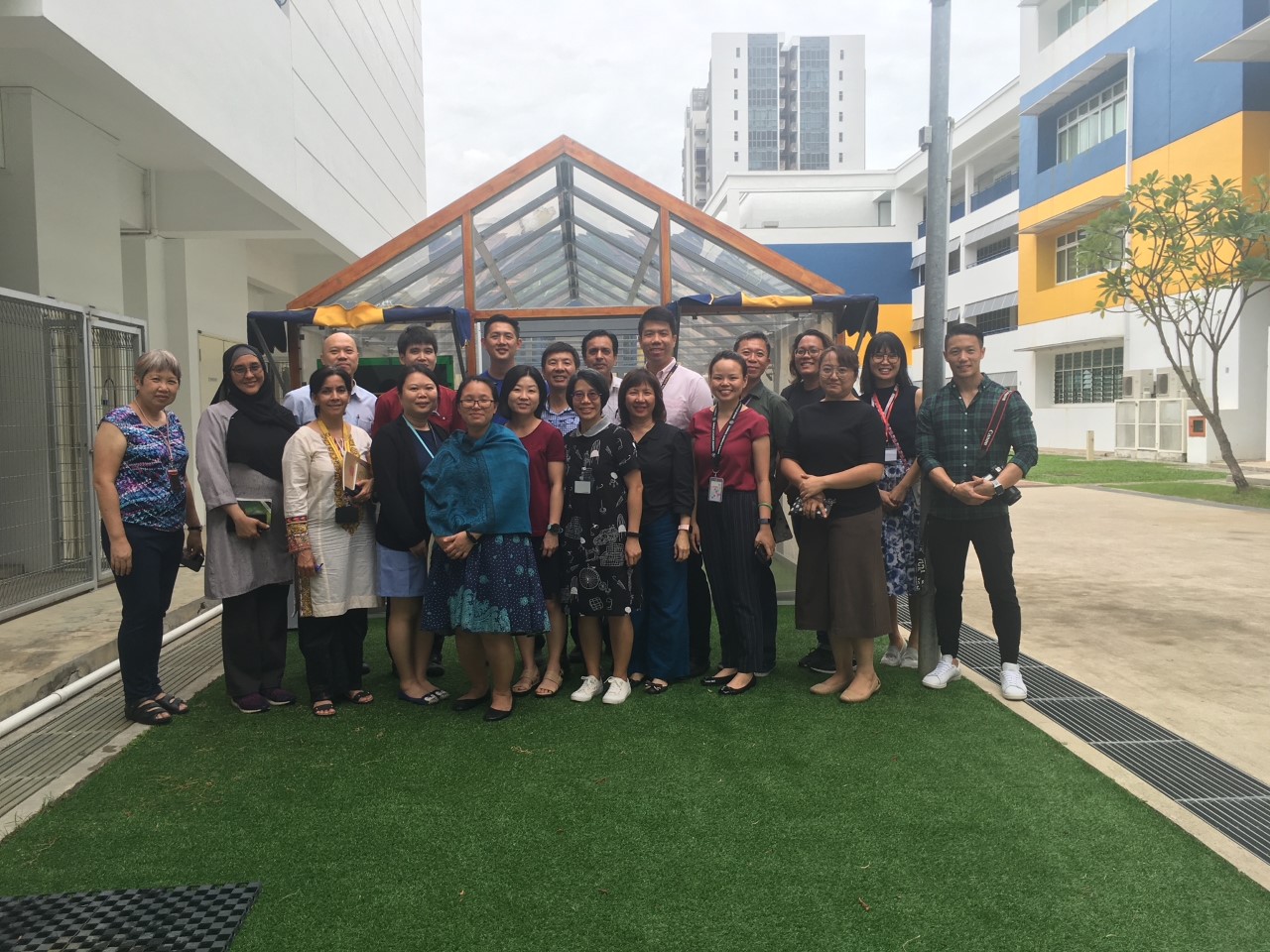
Group Photo at Greenhouse
Sec 1 ALP - Urban Heat Island
Students are introduced to the concept of Urban Heat Island (UHI). They then explore this concept through a series of theory and activity-based lessons and group work.
Students conduct fieldwork experiments using instruments such as data loggers, infra-red thermometers and anemometers to gather data such as surface and ambient temperature, and wind speed to construct a UHI profile of the school.
To deepen students’ understanding of UHI, further investigations and experiments are conducted to discover factors affecting the rate of absorption and reflection of thermal energy. Students are also introduced to various ‘green buildings’ in Singapore.
Students embark on a mini-project, which involves designing and building a model house, incorporating all the elements of a ‘green building’. Students will then present their designs and model houses and the effectiveness of their designs in mitigating the effects of UHI is evaluated.
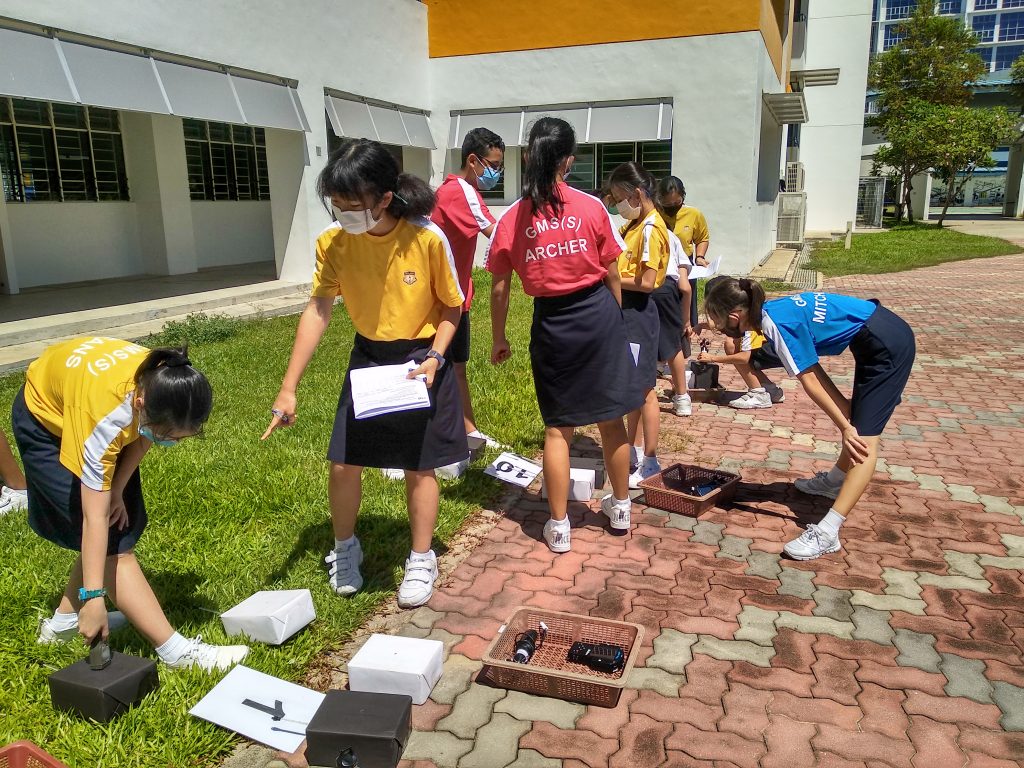
Fieldwork experiments using data loggers and infra-red thermometers.
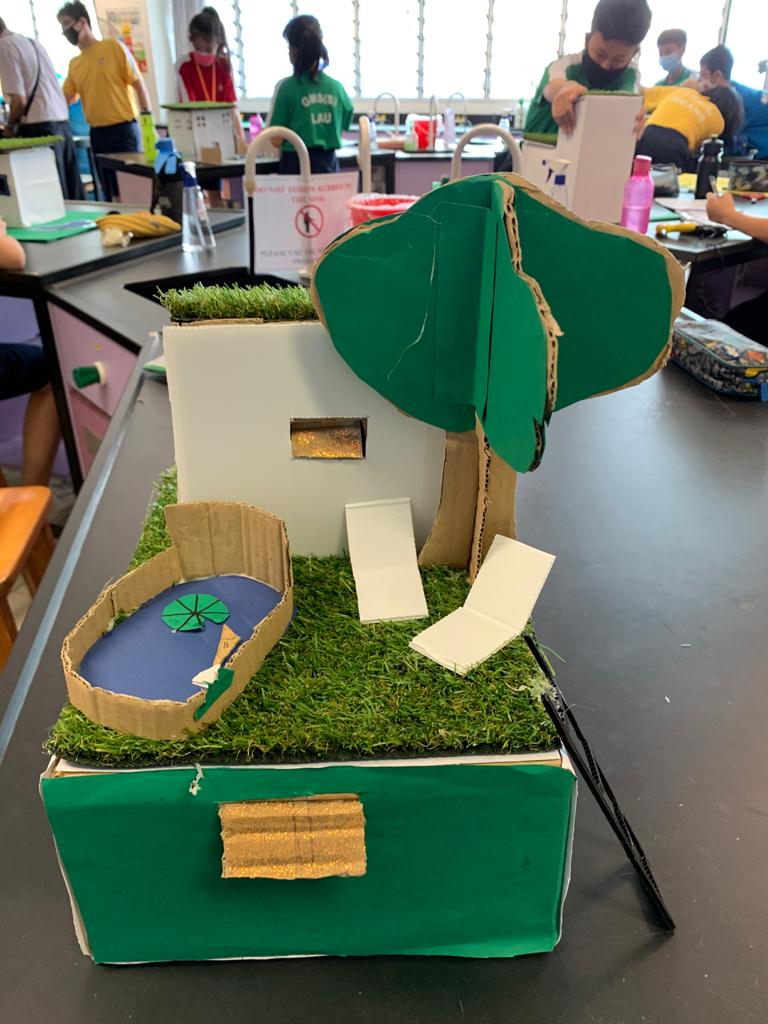
A model of a green building with cooling features by Sec 1 students.
Sec 2 ALP - Urban Agriculture
Sec 2 students are introduced to the concept of Urban Agriculture in a land-scarce, urban environment such as Singapore. Together with ComCrop Pte Ltd, students engage in hands-on experiments and learn the Science, Technology, Engineering and Mathematics (STEM) behind Urban Agriculture. They consolidate their learning by germinating and nurturing the growth of leafy vegetables in the school’s greenhouse using the Nutrient Film Technique (NFT), a hydroponic system, over a span of 10 weeks.
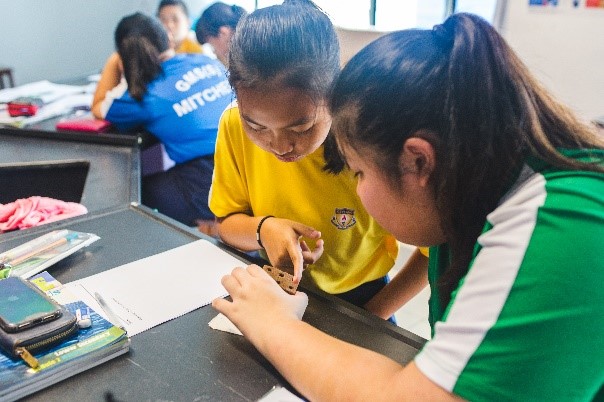
Experiments inside and outside of classroom
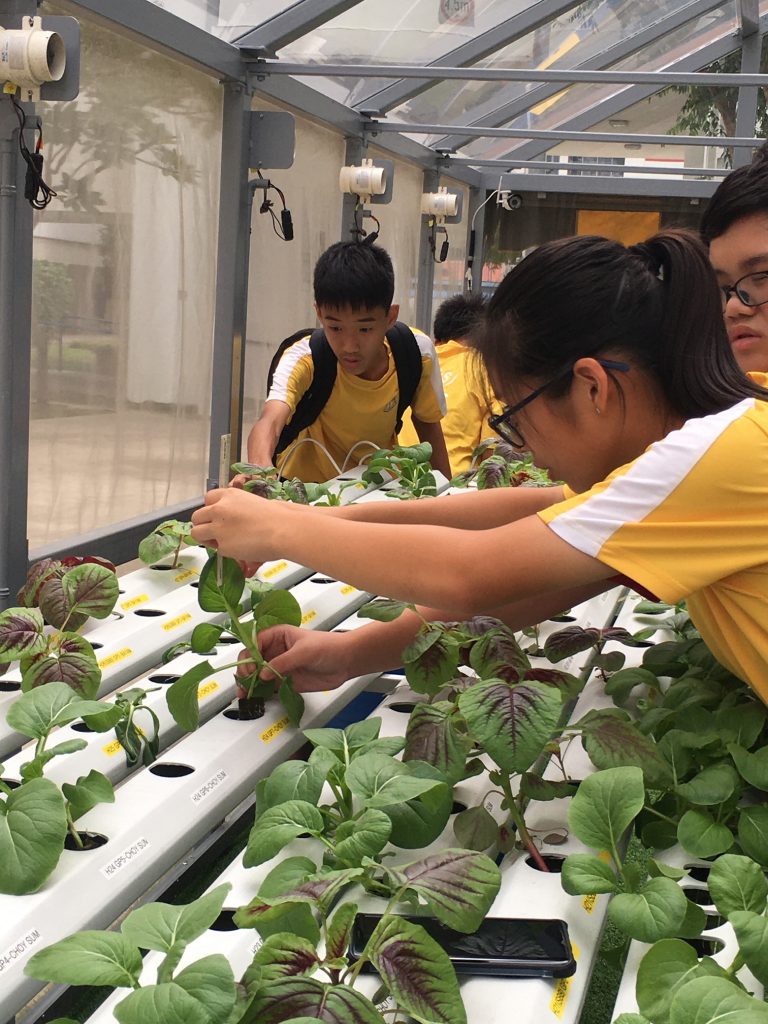
Students at the school’s greenhouse
Sec 3 ALP - Food Sustainability and Security
Sec 3 students across different academic streams, who have shown passion and interest in STEM and the ALP, are invited to participate in this programme.
The Tier 2 Applied Learning Programme in Science (ALP) is designed to further develop students’ interest, abilities and attitude towards science and technology. The program provides a platform for students to explore and connect their scientific knowledge to tackle authentic problems around them.
Students will also be taught scientific skills, such as design of investigative experiments, data acquisition and analysis, and presentation of findings. Students can look forward to interact with experts from ComCrop Pte Ltd and gain insights into urban agriculture.
In addition, students will be given the opportunity to interact with other organisations, such as Singapore Food Agency (SFA) and Republic Polytechnic (RP) ,to broaden their perspectives on food sustainability and security in Singapore, and to learn more about related educational prospects and possible career opportunities.
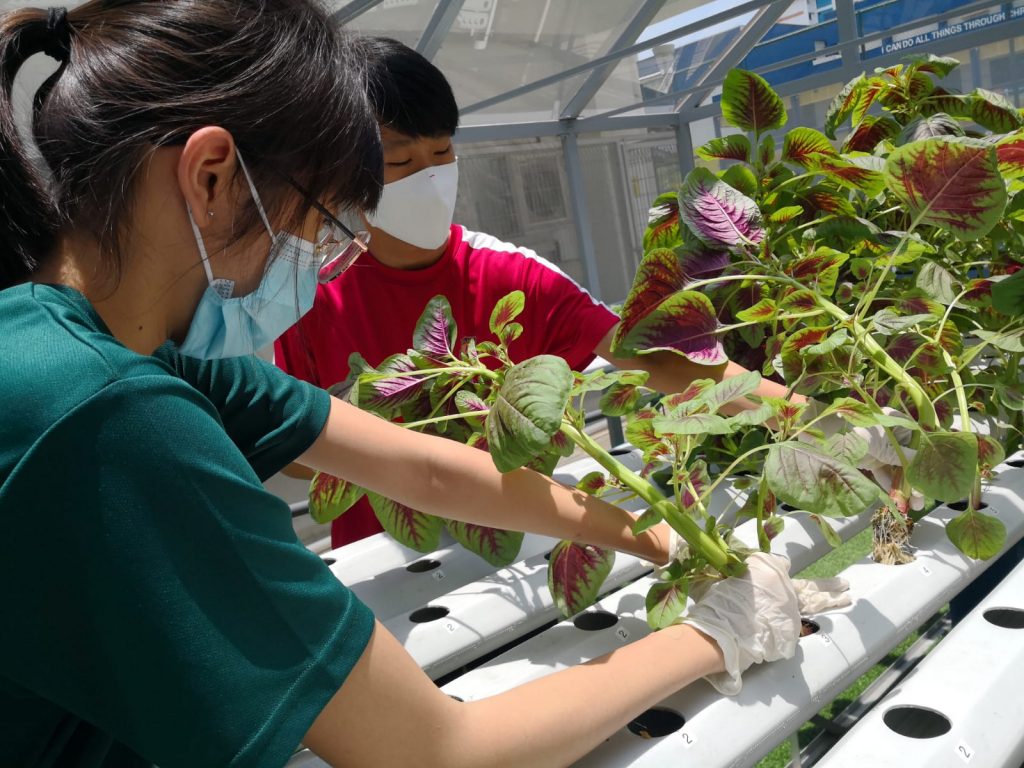
Sec 3 ALP students harvesting their crops.
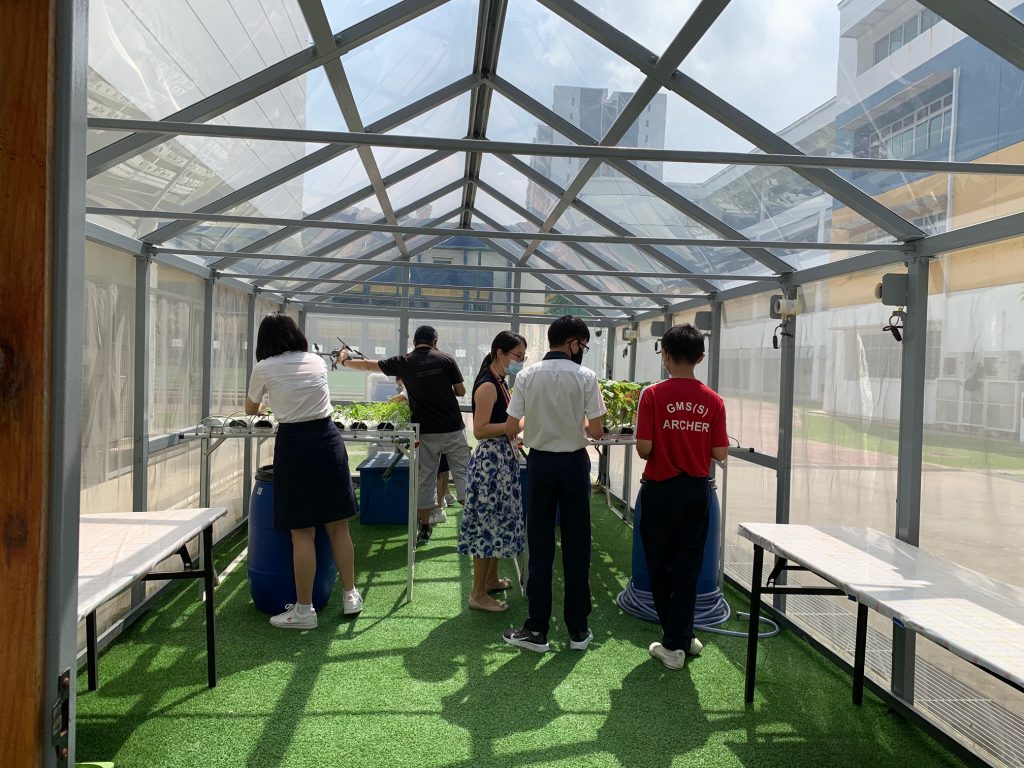
)
Sec 3 ALP students and teacher working at the greenhouse.
Science Enrichment Programmes
Students are given opportunities to participate in external Science competitions to extend and deepen their science knowledge and skills.

-
For more information, do refer to the following links:

